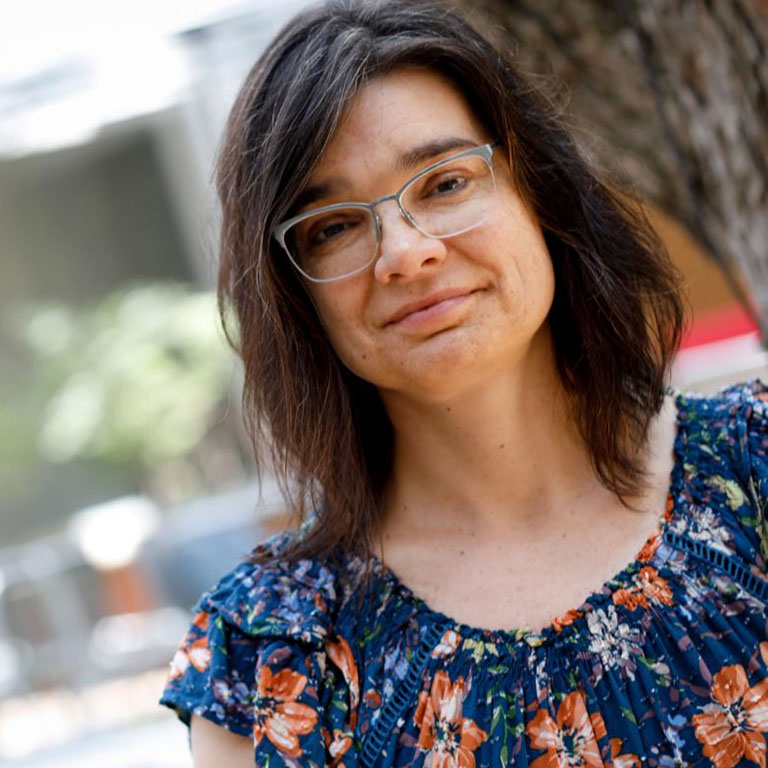While communication through email, texts and social media has grown, social science research around this type of communication has not. Trena Paulus is looking to change that. Paulus graduated in 2003 with a Ph.D. in Instructional Systems Technology, and her work around online conversations is just another example of the range of career paths a degree from the School of Education can provide.
What made you decide to come to IU to get a Ph.D. in Instructional Systems Technology?
I was wavering between doing a Ph.D. in linguistics and shifting to a focus on something Internet-related, as back in 1999 the Internet was still relatively new. Having grown up in Indiana, I checked out IU’s offerings, stumbled on the IST program and was awarded a Chancellor’s Fellowship – so that made the decision easy. While I had already been teaching ESL to university students for several years by then, I had not had any formal training in an education or instructional design program, so I appreciated that the IST program was housed in a school of education.
How do you use your Ph.D.? What is your current career?
I’ve been a professor now at three institutions – the Education Psychology department at the University of Tennessee where I taught ed psych, instructional design and qualitative research; the University of Georgia where I exclusively taught qualitative research methods, and now in the College of Medicine at East Tennessee State University. Here I will be focusing on doctor-patient communication research, applying conversation analysis methods in the medical communication context.
Tell me about your current work and research.
My primary focus for the past 16 years has been on the intersection of technology and qualitative research. Historically, qualitative researchers have not been huge fans of digital tools, so this was an area that I was particularly well-suited to study, given my background. I’ve also looked extensively at online learning – both as a designer and a researcher. I have developed new methods for analyzing online conversations that occur both in formal learning environments and other online spaces. Two books have resulted from these initiatives, Digital Tools for Qualitative Research and Looking for Insight, Transformation and Learning in Online Talk.
Just this year, I have shifted to a research role so that I could come back home to Tennessee with my family after several years of commuting. I am now providing research support for faculty and medical residents in the College of Medicine, as well as across the university. My particular focus here will be improving doctor-patient communication using conversation analysis methods, and I will also continue exploring how best to use new technologies to conduct research, particularly in online spaces.


